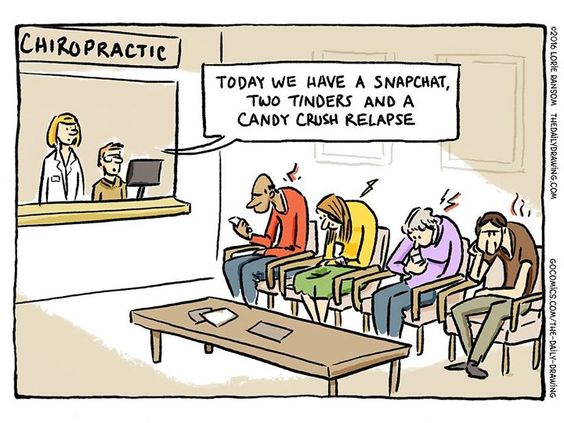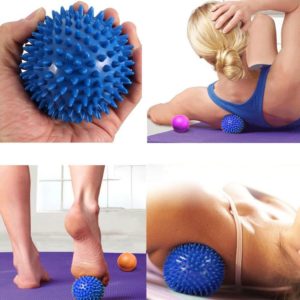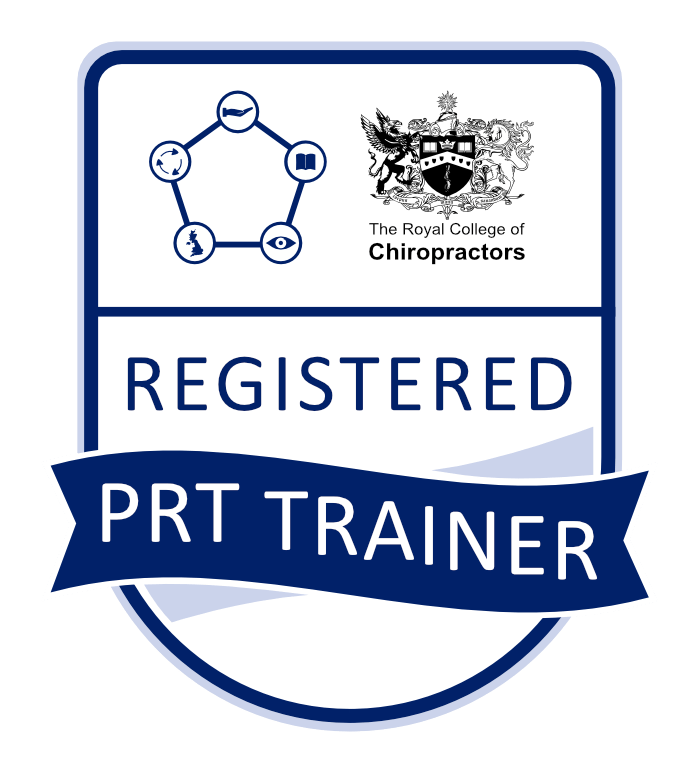Welcome to the November issue of BackChat! Our clinic newsletter. Keeping you up to date with events in the clinic, news from the world of Chiropractic and general Chat. If you have anything you would like to see featured in BackChat! please contact the editor-in-chief, i.e. Jacqui.
Do You Have Text Neck?

There is a new buzzword in health news: Text neck. This is the term used to describe the neck pain and damage sustained from looking down at your mobile phone, tablet, or other wireless devices too frequently and for too long. Of course, this posture of bending your neck to look down does not occur only when texting. For years, we’ve all looked down to read.
The problem with texting is that it adds one more activity that causes us to look down—and people tend to do it for much longer periods. It is especially concerning because young, growing children could possibly cause permanent damage to their cervical spines that could lead to lifelong neck pain.
What are the symptoms associated with text neck?
The most common symptoms are neck pain and soreness. In addition, looking down at your mobile phone too much each day can lead to a number of ailments. These can include upper back pain ranging from a chronic, nagging pain to sharp, severe upper back muscle spasms, shoulder pain and tightness, possibly resulting in painful shoulder muscle spasm. If a cervical nerve becomes pinched, pain and possibly neurological symptoms can radiate down your arm and into your hand.
Some studies suggest, text neck may possibly lead to chronic problems due to early onset of arthritis in the neck. A recent study shows that 79% of the population between the ages 18 and 44 have their mobile phones with them almost all the time—with only 2 hours of their waking day spent without their mobile phone on hand.
Here is some advice for preventing the development or advancement of text neck:
Hold your mobile phone at eye level as much as possible.
The same holds true for all screens—laptops and tablets should be positioned with screens at eye level and you don’t have to bend your head forward or look down to view it.
Take frequent breaks from your phone and laptop throughout the day. For example, set a timer or alarm that reminds you to get up and walk around every 20 to 30 minutes. If you work in an office, make sure your screen is set up so that when you look at it you are looking forward, with your head positioned squarely in line with your shoulders and spine.
The bottom line is to avoid looking down with your head bent forward for extended periods throughout the day. Spend a whole day being mindful of your posture—is your head bent forward when you drive? When you watch TV? Any prolonged period when your head is looking down is a time when you are putting excessive strain on your neck. For more information click here

Edinburgh Women’s Aid is an all women, confidential organisation which provides information, support and, where appropriate, refuge accommodation for women and any accompanying children who have experienced or are at risk of domestic abuse.
Women and children who rebuild their lives away from abuse will often have left familiar surroundings, employment, and their material assets. In many instances they will also have had to leave family and friends.
Along with other charities, their funding has not increased whilst the need for the services has grown. Therefore we are proud to use the clinic as a collection point for donations. We recognise that this is a demanding time of the year for everyone, and that the current financial climate remains difficult for everyone, therefore any help at all would be very much appreciated.
We suggest the following donations:
- Christmas gifts for women and children: please send unwrapped.
- Wrapping paper and labels
- Gift vouchers for children’s activities:There will be a box at the clinic to collect any donations from the beginning of December.
Full details of the charity and how to donate further are available by clicking here
Spiky Massage Balls
 The spiky massage ball was first created in Denmark in an attempt to encourage psychiatric patients out of their depressed mental states using stimulating massage. The design is fairly simple, being a ball that is made from a tough durable plastic that is covered with spikes which have rounded ends. They are becoming increasingly popular because they allow you to perform massage exercises by yourself at home, either under the supervision and instruction of a therapist, or not. The balls work by stimulating the tissues directly beneath the skin and improving circulation, which combined with calm, relaxed breathing helps to release tension in your muscles.
The spiky massage ball was first created in Denmark in an attempt to encourage psychiatric patients out of their depressed mental states using stimulating massage. The design is fairly simple, being a ball that is made from a tough durable plastic that is covered with spikes which have rounded ends. They are becoming increasingly popular because they allow you to perform massage exercises by yourself at home, either under the supervision and instruction of a therapist, or not. The balls work by stimulating the tissues directly beneath the skin and improving circulation, which combined with calm, relaxed breathing helps to release tension in your muscles.
How Can Massage Balls Help?
Spiky massage balls are understood to help relieve tension in large and small muscle areas – in fact this is their biggest benefit. They are also able to help improve poor circulation thanks to the stimulating and relaxing effect of the massage on the tissue.
If you are not sure as to whether using one would be of any benefit to you, please do not hesistate to speak to Georgina or Colin.
We have the Spiky Massage Balls on sale in the clinic for £4.00


